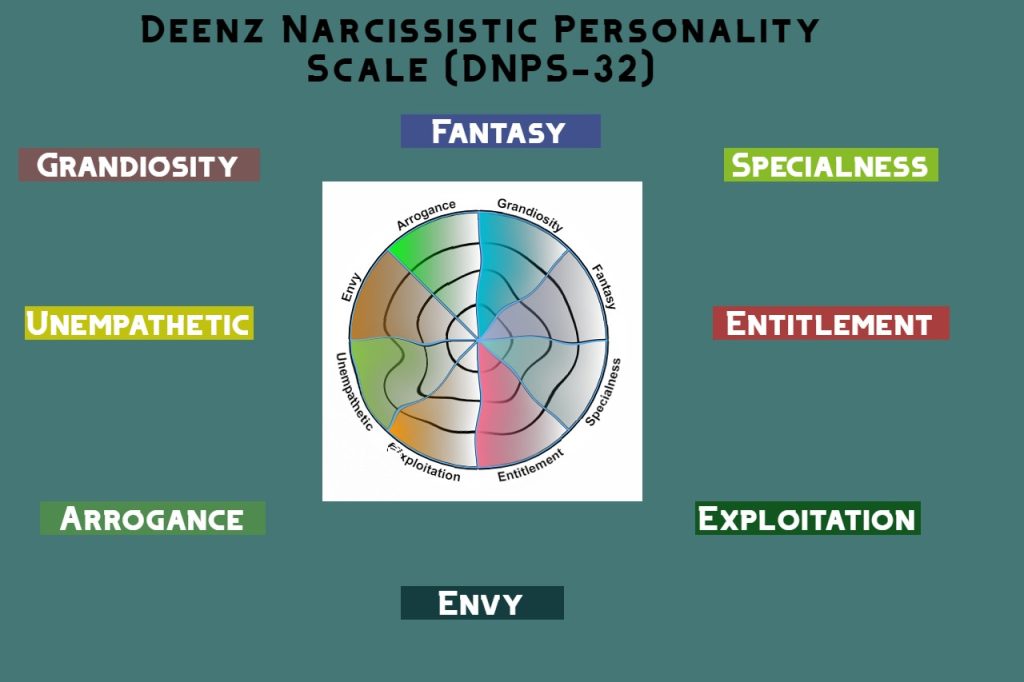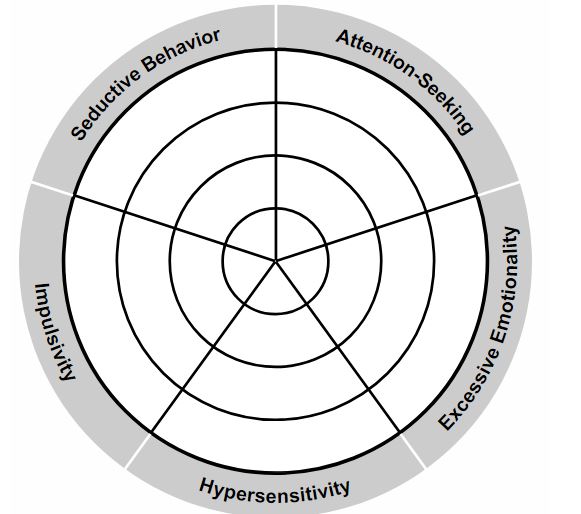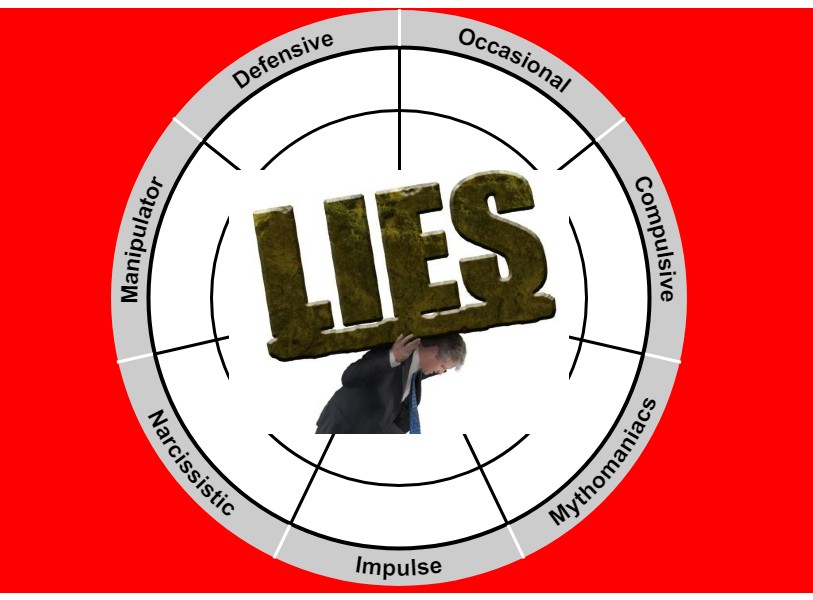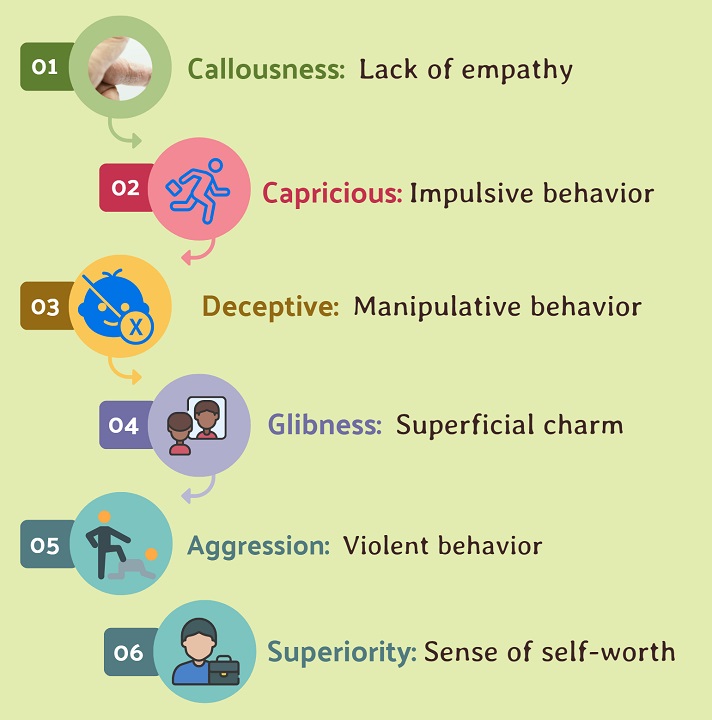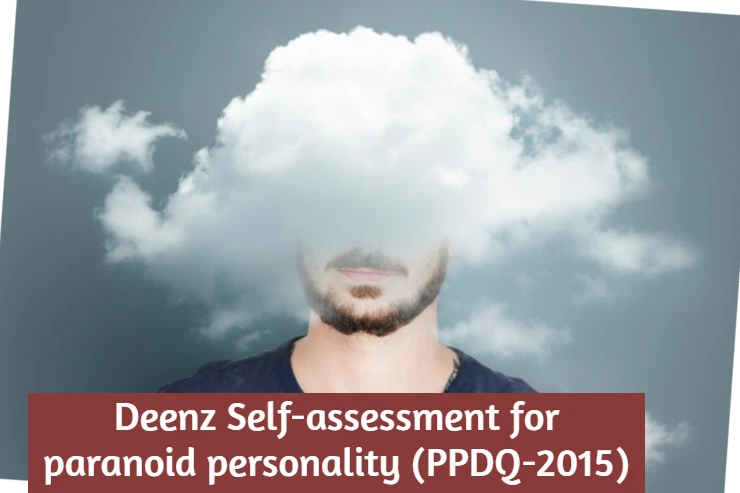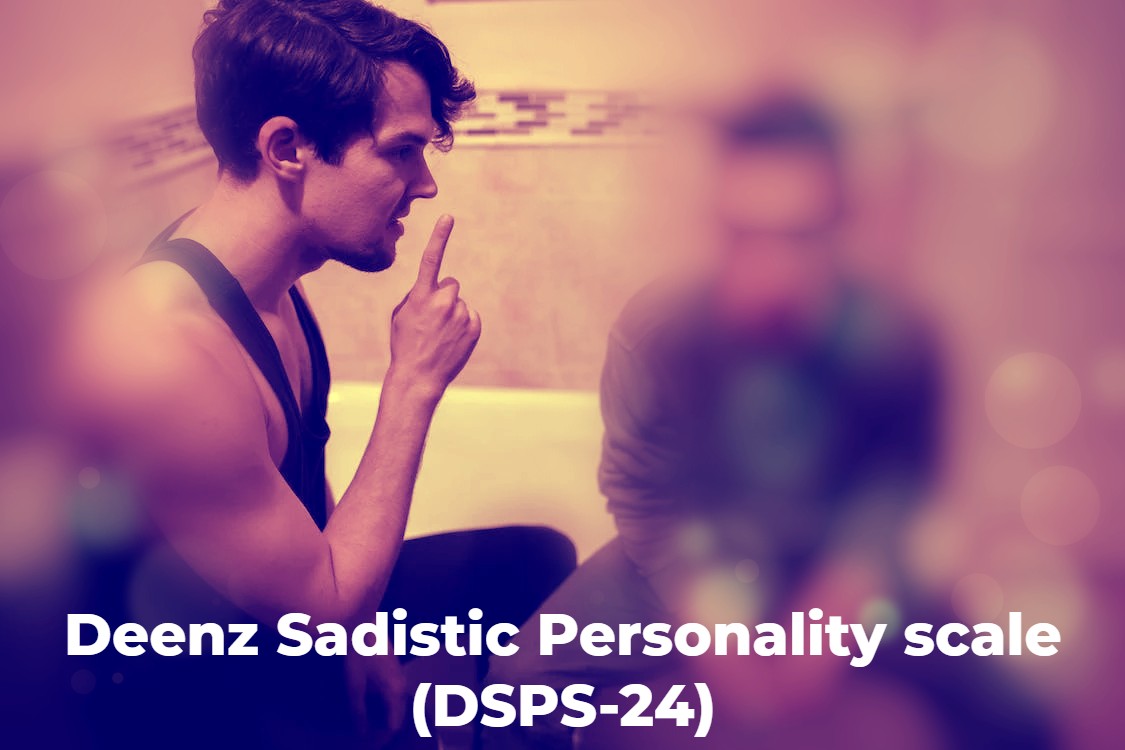Basic information | |
|---|---|
| Statements: | 32 |
| Duration: | 3–5 minutes |
| Type: | Self-assessment Quiz |
| Corresponding author: | Deen Mohd |
| Publishing year: | 2023 |
|
Seminal paper: Development and Validation of Deenz Narcissistic Personality Scale (DNPS-32)- Measuring Subclinical Traits of Narcissistic Personality [https://doi.org/10.31234/osf.io/mfcvp] | |
Narcissistic personality test is the digital adaptation of (DNPS-32) which is based on the preliminary version of research on Development and validation of Deenz Narcissistic Personality Scale. Participation in this scale is completely anonymous and No data is collected or stored for research purposes. The results and graphics provided by this quiz are for educational purposes only and should not be considered or confused as professional advice. For further information read our Privacy & Terms.
Narcissism describes a person who may exhibit a set of personality traits associated with excessive self-love, a need for admiration, and a lack of empathy. From a subclinical perspective, narcissism may be considered a normal and healthy aspect of personality when traits are exhibited at a moderate level and do not cause significant impairment in interpersonal relationships. [1] Womick, J., Atherton, B., & King, L. A. (2020). Lives of significance (and purpose and coherence): Subclinical narcissism, meaning in life, and subjective well-being. Heliyon, 6(5), e03982.
Over time, our understanding of narcissism has evolved. Researchers emphases on understanding narcissism on a spectrum model. [2] Krizan, Z., & Herlache, A. D. (2017). The Narcissism Spectrum Model: A Synthetic View of Narcissistic Personality. Personality and Social Psychology Review. The development of the Deenz Narcissistic Personality Scale, started with the focus on accessing eight distinct but correlated subclinical traits- Grandiosity, Fantasy, Specialness, Entitlement, Exploitation, Unempathetic, Envy and Arrogance.
Subclinical traits of narcissistic personality fall below the threshold of being clinically significant or indicative of a narcissistic personality disorder. By accessing subclinical traits the scale can measure the tendencies or likelihood of developing narcissistic personality disorder.
Narcissistic Personality Facets
Grandiosity: Grandiosity refers to an exaggerated sense of one’s abilities, talent, importance, and power. People with grandiosity have a unrealistic believe of superiority to others, and have an inflated sense of self-esteem, and seek attention from others. They often expect others to treat them with special treatment and privileges without any strong reason. Grandiosity is considered a major trait of narcissistic personality disorder. Grandiosity may lead to interpersonal conflicts and impairs personal and professional life. [3] Brown, R. P., Budzek, K., & Tamborski, M. (2009). On the Meaning and Measure of Narcissism. Personality and Social Psychology Bulletin.
Fantasy: Enjoying or engaging with fantasy or daydreaming is a normal and healthy aspect of human imagination and creativity. It can help in exploring new ideas, emotions, and experiences, but people with narcissistic personality often engage in grandiose fantasies about their power, relationships, and abilities. [4] Raskin, R., & Novacek, J. (1991). Narcissism and the use of fantasy. Journal of Clinical Psychology, 47(4), 490-499. People with narcissistic personality often create scenarios in their mind where they envision themselves as successful, powerful, and attractive. These fantasies provide them temporary relief from underlying insecurities.
Specialness: Feeling special about oneself and having a sense of uniqueness is a positive trait. People with narcissistic personalities have an exaggerated sense of specialness. They believe, they are inherently superior to others in various ways and have a heightened desire for recognition and validation. They engage in behaviors aimed at maintaining this perceived specialness such as having a strong desire to be the center of attention. People diagnosed with narcissistic personality disorder have a sense of insecurity and a need for validation from others, regarding their unrealistic beliefs. These behaviors and attitudes results in difficulties in relationships and interpersonal conflicts.
Entitlement: Entitlement refers to a feeling of deserving special treatment. It’s like believing you should always be first in line because you think you’re better than others. Everyone deserves respect and opportunities but we need to earn it. People with Narcissistic Personalities believe in getting everything they want and expect things to be handed to them without putting in any effort. They strongly believe that they are deserving of receiving admiration, attention, and respect from others, even if they do not deserve it.
Exploitation: People with narcissistic personalities take advantage of others for their own benefit without caring or considering the harm. It’s like using someone else’s resources, talents, or vulnerabilities to gain an advantage, even if causes suffering to others.
Lack of empathy: People with narcissistic personality disorder show signs of lack of empathy and they show shallow emotions and can not feel the sufferings of other people around them.
Envy: Feeling a little jealous when someone gets successful is a natural and normal emotion, but people with narcissistic personalities experience envy when they find others threaten their entitlement with success and power. They may try to belittle others and spread rumors against individuals who they perceive may gaining success. [5] Krizan, Z., & Johar, O. (2012). Envy Divides the Two Faces of Narcissism. Journal of Personality, 80(5), 1415-1451.
Arrogance: Arrogance is an exaggerated sense of own importance and looking down on others. It is like thinking you are better than everyone and not willing to listen to others. People with narcissistic personalities often believe, that they are always right and don’t consider that they might be wrong. They dismiss opinions and belittle others to make themselves feel superior. They believe that their beliefs and opinions are always justified and they try hard not to listen to others when others reject or disagree with their suggestions.
References
Womick, J., Atherton, B., & King, L. A. (2020). Lives of significance (and purpose and coherence): Subclinical narcissism, meaning in life, and subjective well-being. Heliyon, 6(5), e03982. https://doi.org/10.1016/j.heliyon.2020.e03982 ↩
Krizan, Z., & Herlache, A. D. (2017). The Narcissism Spectrum Model: A Synthetic View of Narcissistic Personality. Personality and Social Psychology Review. https://doi.org/10.1177/1088868316685018 ↩
Brown, R. P., Budzek, K., & Tamborski, M. (2009). On the Meaning and Measure of Narcissism. Personality and Social Psychology Bulletin. https://doi.org/10.1177/0146167209335461 ↩
Raskin, R., & Novacek, J. (1991). Narcissism and the use of fantasy. Journal of Clinical Psychology, 47(4), 490-499. https://psycnet.apa.org/record/1991-33202-001 ↩
Krizan, Z., & Johar, O. (2012). Envy Divides the Two Faces of Narcissism. Journal of Personality, 80(5), 1415-1451. https://doi.org/10.1111/j.1467-6494.2012.00767.x ↩





